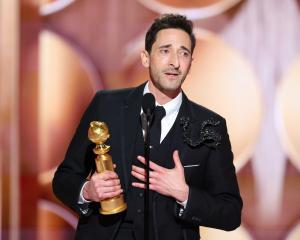
Martin pledged on Saturday to rescue Ireland from the "the fastest-moving recession ever to hit", brought on by the coronavirus crisis.
His Fianna Fail party was forced to join forces with its foes Fine Gael, after a surprise election surge for leftist Irish nationalists Sinn Fein left neither of the traditional centrist parties with enough support to govern on its own. They are joined in coalition by the environmentalist Greens.
Martin is expected to step aside half way through the five-year term to allow Fine Gael's leader, outgoing Prime Minister Leo Varadkar, to return to the post.
"There is no question what our most urgent work is. There is no community, no part of our country which has escaped untouched" by coronavirus, Martin told a special sitting of lawmakers, held in Dublin's Convention Centre as the houses of parliament are too small for social distancing.
To overcome the recession "we must act with urgency and ambition", said Martin, close to tears as he thanked his family who were unable to travel from his native Cork due to coronavirus restrictions due to be eased on Monday.
He was elected by 93 votes to 63 after also securing support from some independent MPs.
The appointment represented a turnaround for Fianna Fail and Martin, who was a member of the government that signed up to an EU/IMF bailout a decade ago and led to an unprecedented 2011 electoral collapse just after he took over as leader.
STIMULUS PACKAGE
The 59-year-old former history teacher, who has held several senior ministries including health, trade, foreign affairs and education, faces another economic crisis with 26% of the country either temporarily or permanently unemployed.
The jobless rate was just 4.8% when the election was fought in very different circumstances in February. The main issue then was over how to allot the spoils of what was Europe's fastest growing economy.
Instead Martin will oversee a stimulus package next month for the sectors hardest hit by the coronavirus lockdown.
Pashcal Donohoe, a candidate to head the Eurogroup of 19 euro zone finance ministers, was reappointed finance minister, as was his Fine Gael colleague, Foreign Minister Simon Coveney. Deputy Prime Minister Varadkar was named trade minister.
The new coalition will also split Irish politics along more explicitly ideological lines than in the past, with Sinn Fein taking over as the main opposition. Though Fianna Fail and Fine Gael emerged from opposite sides in civil war in the 1920s, they have mainly pushed similar centrist agendas for decades.
Sinn Fein, the former political wing of the Irish Republican Army that fought an insurgency against British rule of Northern Ireland, shocked the political establishment in February by securing the most votes with a call for more generous social programmes.
It has 37 seats in the 160-seat parliament, the same number as Fianna Fail and two more than Fine Gael.
"You will no longer get it all your own way," Sinn Fein leader Mary Lou McDonald told the two parties.












